Cytoreductive Surgery – treatment in the Best Hospitals
Here you will find most technologically advanced cytoreductive surgery hospitals in the world
Focus of treatment:
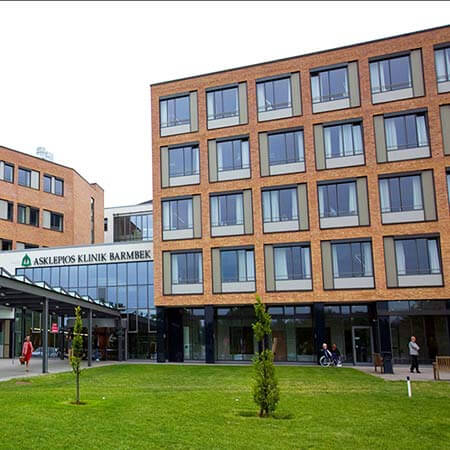
Department of General and Abdominal Surgery, Hepatopancreatobiliary Surgery and Hernia Surgery
The Department of General and Abdominal Surgery, Hepatopancreatobiliary Surgery and Hernia Surgery offers the full range of services in the areas of its specialization. The department's surgical team successfully performs interventions for diseases of the stomach, esophagus, small intestine, large intestine, rectum, pancreas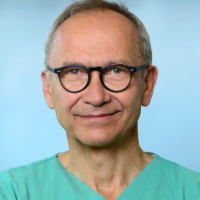
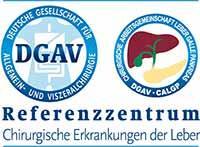



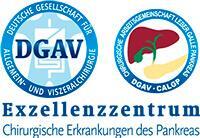

Department of General, Abdominal, Transplant, Hepatopancreatobiliary, Colorectal, Endocrine, Bariatric Surgery and Hernia Surgery
The Department of General, Abdominal, Transplant, Hepatopancreatobiliary, Colorectal, Endocrine, Bariatric Surgery and Hernia Surgery provides the full range of services in the areas of its specialization and holds a leading position at the national and international levels in terms of the number of surgical interventions perfor




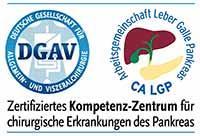

Department of General and Abdominal Surgery, Hepatopancreatobiliary Surgery, Colorectal Surgery, Endocrine Surgery, Hernia Surgery and Bariatric Surgery
The Department of General and Abdominal Surgery, Hepatopancreatobiliary Surgery, Colorectal Surgery, Endocrine Surgery, Hernia Surgery and Bariatric Surgery offers the full range of effective surgical treatments in accordance with modern medical standards. Operations of varying complexity are performed on the stomach, colon, pan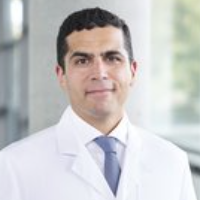





Cytoreductive operations are surgical procedures aimed at cytoreduction, which implies tumor size reduction. Unlike radical operations, the goal of the surgical intervention is not to completely cure the patient because cytoreductive surgery is performed at stages when this goal becomes unattainable. There is no need to remove a significant amount of healthy tissue surrounding the tumor during cytoreductive interventions, so doctors perform resections of only the pathologically altered tumor tissue, aiming to remove it completely.
Content
- What diseases can be treated with cytoreductive surgery?
- How is cytoreductive surgery performed?
- Effectiveness of cytoreductive surgery
- Where can I undergo cytoreductive surgery?
What diseases can be treated with cytoreductive surgery?
Cytoreductive surgery abroad is most commonly performed for ovarian cancer, colon cancer, appendix cancer, stomach cancer, etc. It can also be used for some patients with endometrial, small intestinal, pancreatic, liver, gallbladder, and bile duct tumors.
The reason for performing cytoreductive surgery is the spread of cancer throughout the peritoneum. This condition is called peritoneal cancer (carcinomatosis).
Cytoreductive surgery (CRS) is technically complex, time-consuming, and unsafe for a patient. It is therefore usually performed when the patient has a good general health condition and limited peritoneal carcinomatosis. Surgical interventions allow for the best results in cases of ovarian cancer, colorectal cancer, appendix cancer, and primary peritoneal tumors. The five-year survival rate of patients after complete cytoreduction reaches 30-50%. These are excellent results as compared to palliative chemotherapy, which usually provides a survival period of only 5-10 months for patients with peritoneal carcinomatosis.
How is cytoreductive surgery performed?
Sugarbaker P.H. is considered the founder of cytoreductive surgery. He described this surgical intervention in 1985. Even when used as a stand-alone method, this type of surgery brought good therapeutic results that were further improved with an additional procedure.
Since 1995, this surgery has been complemented with hyperthermic intraperitoneal chemotherapy (HIPEC). Doctors rinse the abdominal cavity with a hyperthermic solution containing a high concentration of cytostatics to destroy any remaining cancer cells after the resection. Since 2000, hyperthermic intraperitoneal chemotherapy has become common in Cancer Centers in Europe and North America.
When performing cytoreductive surgery, doctors aim to remove all visible cancerous tumors. If this is achieved, the cytoreduction is considered complete. It is designated as CC0. Sometimes tumor foci up to 2.5 mm in size remain. In this case, cytoreduction is considered optimal and is designated as CC1. Starting with suboptimal cytoreduction (tumors remaining at sizes between 2.5 mm and 1 cm), surgical outcomes significantly deteriorate. They are comparable to systemic chemotherapy in terms of patient survival rates. Doctors therefore accurately select candidates for cytoreductive surgery. They operate only on those who actually have a good chance of complete cytoreduction. In the leading European hospitals, all tumor foci can be removed in 90% of patients.
During cytoreductive surgery, doctors completely or partially remove the problematic organ. For example, patients with stomach cancer undergo a gastrectomy, those with colon cancer undergo colon resection with an end-to-end anastomosis, and those with ovarian or endometrial cancer need removal of the uterus and its appendages. As a rule, regional lymph nodes are also removed.
Otherwise, the operation is individual for each patient. It can last from one and a half to 10-12 hours or more. Doctors examine the abdominal cavity, resect the affected areas of the peritoneum (peritonectomy procedure), totally or partially remove organs of the abdominal cavity, and sometimes also pelvic organs. After their removal, a reconstructive surgical stage is often required to restore the continuity of the digestive tract, normal bile drainage from the liver, and the flow of digestive juices from the pancreas.
Effectiveness of cytoreductive surgery
The effectiveness of treatment depends on several factors. These are as follows:
- Types of cancer
- Peritoneal cancer index
- Additional use of HIPEC
- Experience in the medical center (the best hospitals for cytoreductive surgery are those that perform more than 55 surgical procedures every year)
A French study involving 440 patients from 23 centers showed that using a combination of CRS and HIPEC provides the following five-year survival rates, depending on the type of cancer:
- Colon cancer: 30%
- Rectal cancer: 38%
- Small intestine cancer: 34%
- Appendix cancer: 63%
The effectiveness of cytoreductive surgery for stomach cancer is lower, so it is performed on patients with a lower peritoneal cancer index. On average, the specialists manage to achieve a one-year survival rate in 52% of patients, a three-year survival rate in 15% of patients, and a five-year survival rate in 11% of patients with surgical treatment. These results can be improved with high-quality systemic cancer therapy, including chemotherapy, targeted therapy, and immunotherapy following surgery.
Ovarian cancer is diagnosed at stages 3-4 in 75% of cases. Cytoreductive surgery can be performed in 25% of patients. If complete cytoreduction with HIPEC is achieved, the five-year survival rate can reach 61%.
The success of therapy for hepatopancreatobiliary tumors (those in the liver, gallbladder, and bile duct) is significantly lower. Surgery for these neoplasms is lengthy and traumatic; the postoperative period can be complex, and the survival rate of patients is not significantly increased compared to systemic therapy. Cytoreductive surgery is therefore uncommon for these diseases and is not considered a standard treatment option.
Where can I undergo cytoreductive surgery?
Cytoreductive surgery is very complex, so its results and complication rates vary significantly from hospital to hospital. If you need this surgical intervention, it is better to undergo your treatment abroad at a reputable Cancer Center. In developed countries, the achievement of complete cytoreduction reaches 90%, and the mortality rate of patients is 1.5% (compared to the world average of about 4%). The additional use of the HIPEC procedure significantly improves treatment results.
You are welcome to use the Booking Health service to undergo your treatment abroad. On the Booking Health website, you can find out prices, select the most suitable clinic, and make a treatment appointment for your preferred dates. We will help you select a medical center with vast experience in performing cytoreductive surgery and reduce the waiting period for your treatment. When you make your treatment appointment through Booking Health, the cost of medical services will be lower for you than if you contact the clinic directly. This is due to the absence of additional fees for foreign patients.
Authors:
The article was edited by medical experts, board-certified doctors Dr. Nadezhda Ivanisova and Dr. Vadim Zhiliuk. For the treatment of the conditions referred to in the article, you must consult a doctor; the information in the article is not intended for self-medication!
Sources:

